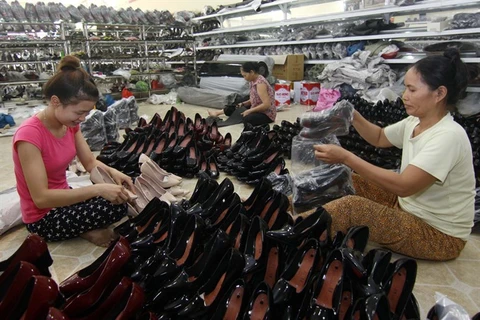Editor’s words
For many households doing business in the traditional way for a long time, investing more in technology and making accounting books are what they do not want. Others with revenues of trillions of VND are still determined to stay with the household model, although this revenue may be tens of times higher than that by small-sized businesses.
The reasons are ample, but taking advantage of favourable terms in current policies is inevitable.
Such are what insiders think of. Overall, experts say the transformation is necessary to avoid ambiguity and further, it is the motivation of the whole society.
The problem is that turning millions of business households into businesses is not a task that can be done just overnight, but it is even a decades-long story. More importantly, whether it is a business or a business household, what people need is a truly business-friendly environment. Then, perhaps, the households will start their own businesses without needing any persuasion.
Why the don't want to become ‘big’
Commenting on the Draft Law amending the Investment Law and the Law on Enterprises, Chairman of the Vietnam Chamber of Commerce and Industry (VCCI) Vu Tien Loc said there are about 5 million business households nationwide at present, accounting for 30 percent of the gross domestic product. However, policies are not enough to encourage households to turn themselves into businesses.
However, from a micro perspective, business entities have a simpler view with practical needs.
Tran Thi Quynh, owner of a relatively big children's clothing store in Hanoi’s outlying district of Hoai Duc, said that the individual business household model is very suitable for her family.
She explained that her shop mainly retails apparel to consumers. The demand for output invoices is almost non-existent while there are no input invoices when picking up goods at factories or wholesale markets. Therefore, it is not necessary to switch to the company model.
“With my capacity and knowledge, the current household business model is very suitable and convenient. Though there are salespeople, they only support manual jobs and I still have to handle most of the work. Therefore, I feel satisfied with the current model because it fits my strength, but if I expand and develop into a business, it will be too overloading for me,” Quynh said.
Similarly, Thanh Loan owns a small-sized confectionery in Hanoi’s Ha Dong district. Every day, she manages all the stages from importing raw materials, producing cakes, finding wholesale customers and looking after her retail store. Fortunately, all of this work has been supported by a software system, so she is not too busy and still has time to care for her family with two school-aged children.
“The difficult problem is not about making reports because the technology can do it all. But because the size of the store is small so the input materials are mainly bought from the market, making it hard to deliver invoices and explain the input costs. Therefore, paying a lump-sum tax is a reasonable choice for me,” Loan said.
The mentality of "content with fate” of individual business owners is completely reasonable and understandable, but in fact, it is not impossible to convert to the form of a company.
The case of Nguyen Thi Thuyet is in point. At first, it was only a mobile phone sim and card business household in Hanoi’s Tay Ho district, but as the partner required agents to have legal entity, she had to switch to the business model.
When running the company with monthly, quarterly and yearly reports and working with high-level authorities, Thuyet feels pressured and "very scared”.
“It needs to be done very carefully. Whenever I put some wrong data, I lost my appetite and sleep because penalties were very heavy. I bought a software management system and asked my daughter, who recently graduated from university, to help with tax reporting,” she recounted.
After two years of experimenting with the new business model, she has become familiar with running the company and her business kept growing with higher revenues.
Vice Chairwoman of the Vietnam Association of Spas and Beauty Salons and Chairwoman of its Hanoi municipal chapter Vu Thanh Hai said in the 1990s, after opening a sportswear shop, she found out that the company model will be more convenient to develop customer base.
According to her, the individual business household model is popular in the beauty industry. Many young people open stores after apprenticeship, many of them become successful thanks to good skills. However, customer care, human resources management, community responsibility and international cooperation remain limited.
“The association is interested in the issue and will carry out activities to encourage business households to turn themselves into enterprises such as holding seminars, business-to-business matching sessions at home and abroad, offering consultancy on accessing software technology in product management, service delivery timer, and electronic bills,” she said./.

























